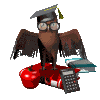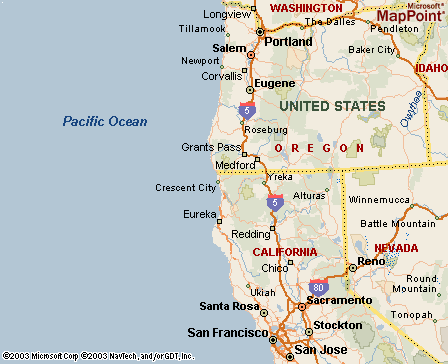|
|
Canku Ota |
|
|
(Many Paths) |
||
|
An Online Newsletter Celebrating Native America |
||
|
November 15, 2003 - Issue 100 |
||
|
|
||
|
Tah-Ah-Dun Magnet School Extends Program to Adults |
||
|
by Christine Walters Eureka
Times-Standard
|
||
|
credits: {credits}
|
|
Like Castle Rock Charter School, Tah-Ah-Dun is a self-paced independent program designed to meet or exceed the state's academic standards. In addition, the school incorporates the Tolowa language and tribal cultural traditions. Teacher Loren Bommelyn and his wife, Lena Bommelyn, who is the instructional assistant of the school, form the staff for the entire program. Forty students are enrolled this year, up from 27 last year. All are Native Americans except one, Bommelyn said. "If requests continue to grow, we're going to have to hire another teacher," he said. Bommelyn is excited to be able to offer parents the opportunity to obtain a high school diploma along with their children, as there is no age limit for students. Math and reading skills are assessed when students enroll to determine their grade level. In addition to the required normal academic curriculum, Bommelyn teaches the Tolowa language on a one-to-one basis. In the "curriculum cafe," he and his wife also hold classes in basketry, canoe and paddle carving, and the making of drums, nets, jewelry and native dresses. "This program meets the students on an individual basis, and the starting point is at their ability level, not their sequential (grade) level," Bommelyn said. "This is the reason for the assessments, so that we know that a student is starting at the reading level in which they can function. Then we challenge them to raise that as they have time with us. So we're going to move them through the same curriculum (as conventional schools). The difference is it's going to be on their time frame and at their level for what they need. "That is what helps them succeed here," he said, "because if you can't read at a certain level and you're in a class where you're forced to do curriculum at that level, you're going to fall behind. So that's why we're different. "And then we're hoping that the Native Americans in this particular portion of the program are connecting to the cultural experience and need to be and want to be a part of that. That's where we want to reinforce that part of their world, to support it, to validate that experience and those values. So if we can do both of those things, then I think we can have success with them." Tah-Ah-Dun offers students a different pathway to the same goal as conventional schools -- graduation and a diploma, he said. "If that fits their personality and helps them excel in their education experience, then that's what I'm excited about," he said. "That they end up feeling really good about who they are and that they have that success happening for them, because it's the rest of their lives that they have to live. "And that's where (our) responsibility-based approach (comes in). They have to have buy-in. They've got to want it. If they don't -- like my dad always said, and you've heard the same thing, 'You can lead a horse to water, but you can't make him drink.' That buy-in has to occur. Either it does or it doesn't, but once it does, get out of the way!" |
|
|
www.expedia.com |
|
|
||
|
|
||
| Canku Ota is a free Newsletter celebrating Native America, its traditions and accomplishments . We do not provide subscriber or visitor names to anyone. Some articles presented in Canku Ota may contain copyright material. We have received appropriate permissions for republishing any articles. Material appearing here is distributed without profit or monetary gain to those who have expressed an interest. This is in accordance with Title 17 U.S.C. Section 107. | ||
|
Canku Ota is a copyright © 2000, 2001, 2002, 2003 of Vicki Lockard and Paul Barry. |
||
 |
 |
|
|
The "Canku Ota - A Newsletter Celebrating Native America" web site and its design is the |
||
|
Copyright © 1999, 2000, 2001, 2002, 2003 of Paul C. Barry. |
||
|
All Rights Reserved. |
||
 Del
Norte County's Tah-Ah-Dun Magnet School made its K-12 program
accessible to adult students this fall when it moved its offices
under the umbrella of Castle Rock Charter School. Founded in 2000,
Tah-Ah-Dun was formerly part of the Independent Studies Program.
Del
Norte County's Tah-Ah-Dun Magnet School made its K-12 program
accessible to adult students this fall when it moved its offices
under the umbrella of Castle Rock Charter School. Founded in 2000,
Tah-Ah-Dun was formerly part of the Independent Studies Program.
